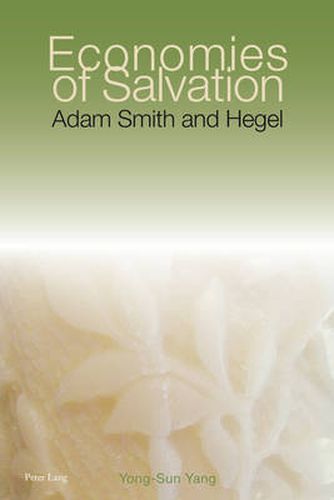Readings Newsletter
Become a Readings Member to make your shopping experience even easier.
Sign in or sign up for free!
You’re not far away from qualifying for FREE standard shipping within Australia
You’ve qualified for FREE standard shipping within Australia
The cart is loading…






This book challenges the notion of the separation between economics and theology. It explores relationships between the disciplines through the concept of salvation, focusing on the work of Adam Smith and G.W.F. Hegel. They wrote as the disciplinary boundaries between economics and theology were taking shape, and remain important figures in contemporary discussions. Illuminating the theological foundations of the economic ideas of these two main thinkers, this book enriches our understanding of issues related to salvation such as: sympathy and recognition; poverty and the state; the invisible hand and the cunning of reason; evil and scarcity and eschatology. Moreover, the book contributes to a broader understanding of salvation and provides a model for future dialogue between economists and theologians by extending the frontiers of this unexplored field of research.
$9.00 standard shipping within Australia
FREE standard shipping within Australia for orders over $100.00
Express & International shipping calculated at checkout
This book challenges the notion of the separation between economics and theology. It explores relationships between the disciplines through the concept of salvation, focusing on the work of Adam Smith and G.W.F. Hegel. They wrote as the disciplinary boundaries between economics and theology were taking shape, and remain important figures in contemporary discussions. Illuminating the theological foundations of the economic ideas of these two main thinkers, this book enriches our understanding of issues related to salvation such as: sympathy and recognition; poverty and the state; the invisible hand and the cunning of reason; evil and scarcity and eschatology. Moreover, the book contributes to a broader understanding of salvation and provides a model for future dialogue between economists and theologians by extending the frontiers of this unexplored field of research.